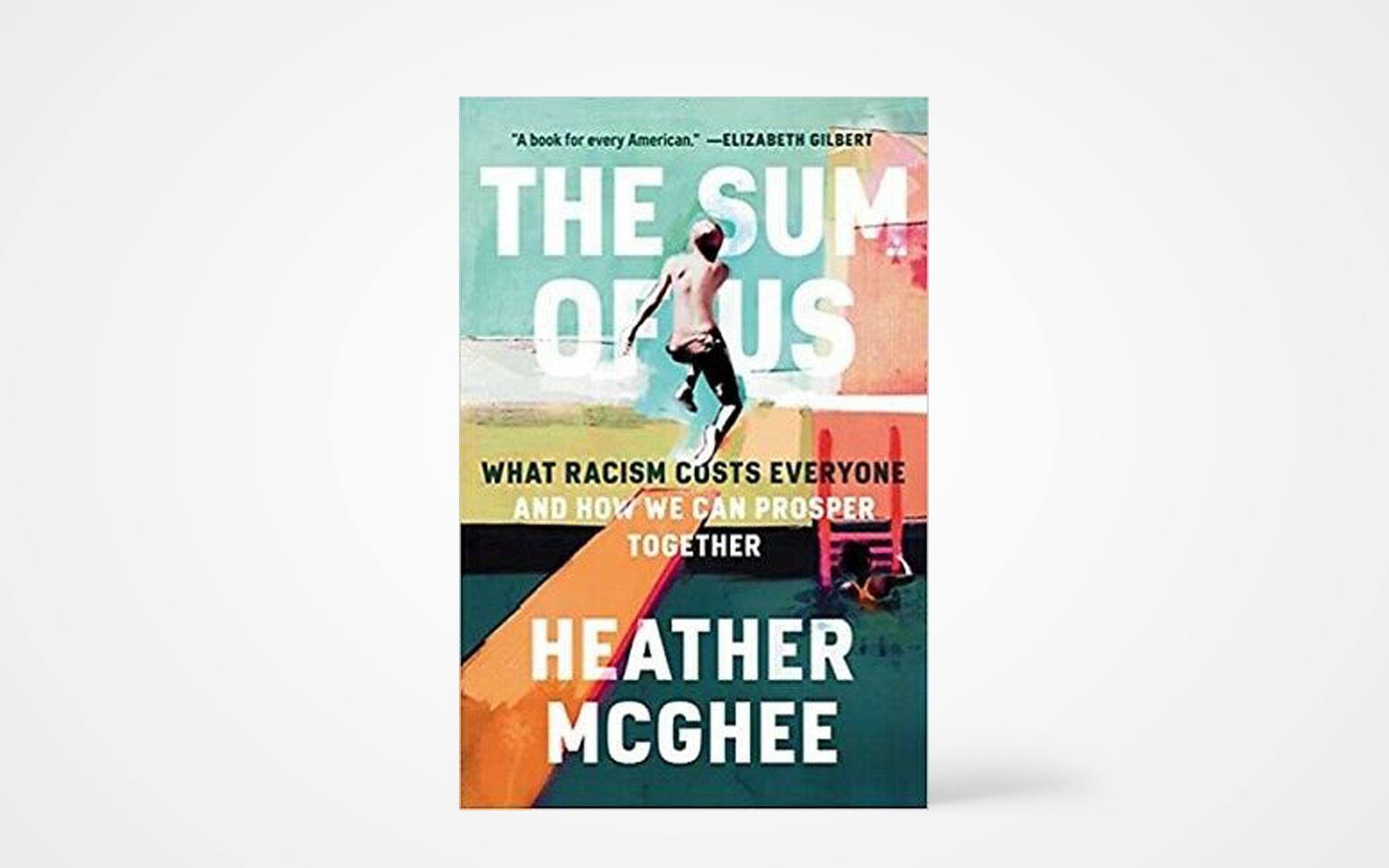Anyone who genuinely wants to better understand matters of race in North America has no shortage of good books to choose from. They might, in fact, feel overwhelmed by the sheer number of good choices, from The Color of Compromise to Caste. At the same time, those who have read such works might feel that they’ve gone deep enough; they’ve got a view of our tragic past and present, their minds and hearts likely reeling from the injustice of it all. But I’m convinced that it would be a shame if either the newly started reader or the more seasoned one passed over Heather McGhee’s The Sum of Us, a book that offers a new perspective on race, as well as concrete instances of hope.
McGhee opens the book examining the problem of why Americans can’t seem to have “nice stuff,” the stuff here ranging from universal health care to affordable college tuition. To answer this question, she tells the story of drained swimming pools in the 1950s. Starting in the 1930s, the government embarked on an ambitious plan to build “grand public resort pools as ‘social melting pots’—part of an ‘Americanizing’ project intended to overcome ethnic divisions and cohere a common identity.” However, rather than integrate, many towns chose to close their public pools, and people who could afford to instead joined private clubs or built pools in their backyards. The phrase people who could afford to is instructive here, McGhee’s point being that such racist solutions ended up depriving not only African Americans but any white people who didn’t have easy access to private pools.
In each successive chapter, McGhee describes how the same mentality—of using privatization to sidestep integration—has robbed us collectively of a specific good. She shows how, over and over, we buy into a “zero-sum” story, the false narrative that any program that might help African Americans must by definition come at a cost to white people. But in truth these exact same programs would provide just as much opportunity for white people (even more so numerically). Such programs would reduce the obvious inequality we all live with, but we have internalized this story—sold to us by politicians and corporations—so much that we often support policies that go against our own self-interest. Rather than share, we drain the pool.
Readers might raise one of two objections at this point, each from different sides of the political spectrum. Conservatives might argue that their belief in small government has nothing to do with race. McGhee addresses this point deftly through detailed historical research. She makes the case that white people were happy to accept governmental help—e.g., the GI bill or federally backed mortgages—up until the Civil Rights era. In fact, much of white intergenerational wealth was built through such programs. McGhee, therefore, forces us to ask ourselves: what does it say that we only changed our minds about the role of government when people of color gained legal access to its benefits?
Those with a more liberal bent might take issue with the book’s central strategy; why should The Sum of Us need to appeal to white self-interest for us to care about racism? Shouldn’t the moral evil of racism by itself move us to care? To be clear, McGhee directly states that drained swimming pool policies have hurt people of color disproportionately. At the same time, McGhee’s genius, a rhetorical one as much as a moral one, is to remind us that when we see our interests as aligned—when we discredit the zero-sum story—that’s when real change happens.
As for those of us who are simply downhearted about the divisions in this country, The Sum of Us provides a glimpse of an alternate future. For me, the best parts of this book introduce regular people working for grass-roots organizations that challenge the conventional wisdom of division. Indeed, their stories—as down-to-earth as they are uplifting—offer us a vision of hope made concrete. A vision, that is, where reckoning with injustice leads not to mutual distrust but to mutual flourishing. (Penguin Random House)
About the Author
Andrew Zwart lives in Grand Rapids, Mich., and is director of interdisciplinary studies at Kuyper College. He enjoys gardening, impromptu dance parties with his wife and two boys, and taking walks while listening to podcasts.

